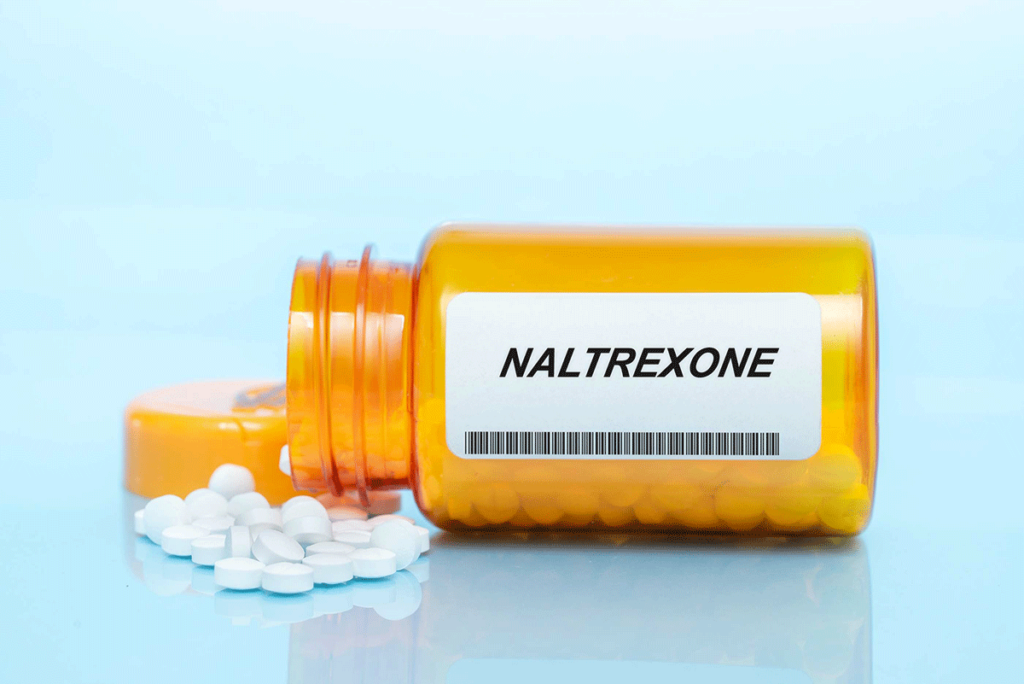Copyright © 2024 - Gearlabblog.com

Naltrexone: An Underused Treatment for Alcohol Use Disorder
Many studies have shown that naltrexone is a safe and effective medication for reducing and stopping alcohol consumption. However, it is rarely prescribed by doctors.
In 2017, Katie Lain was drinking heavily, often blacking out multiple times a week. She would drink at least one bottle of wine on weeknights and binge on vodka during weekends. Despite a serious health scare from a pulmonary embolism, she struggled to quit drinking.
Later that year, a doctor prescribed naltrexone, a drug that blocks the brain’s reward centers. Katie noticed an immediate change. “I would pour a third glass of wine and it would sort of just sit there,” she said. “I couldn’t believe it. It was life-changing.” She has been alcohol-free for four years.
Around 12 million people in the U.S. suffer from alcohol use disorder, which the Centers for Disease Control (CDC) defines as consuming more than four drinks per occasion for women and more than six for men. Alcohol use disorder leads to 500 deaths daily from car crashes, organ failure, related cancers, and acute alcohol poisoning combined.
Naltrexone, an opioid antagonist, was first approved by the Food and Drug Administration (FDA) to treat alcohol use disorders in 1994. Despite its proven effectiveness, only about 1 percent of people with alcohol use disorders were prescribed naltrexone in a 2023 survey. A recent study found that people with alcohol use disorder were the least likely to receive naltrexone compared to those with other substance use disorders.
Experts believe the low prescription rate is due to a lack of knowledge about the drug and the stigma surrounding alcohol use disorders. Many healthcare providers still view alcohol addiction as a result of poor choices rather than a medical condition that requires treatment.
“Even in health care, people tend to think of alcohol addiction as ‘making bad choices,’” said Andrew Saxon, an addiction psychiatrist and professor at the University of Washington School of Medicine. “They don’t see it as their job to treat substance use disorders.”
The belief that total abstinence is the only treatment for alcohol use disorder is outdated. Any reduction in drinking is now seen as a success among addiction researchers.
Besides naltrexone, there are two other FDA-approved medications for treating alcohol use disorder: acamprosate and disulfiram. These drugs make people sick when they drink, but the effects can be avoided by skipping a dose.
Naltrexone blocks neurotransmitters in the brain’s reward system, reducing the positive feelings alcohol creates. It is related to Narcan, the overdose antidote, but works more slowly.
Finding a doctor willing to prescribe naltrexone can be challenging. Many doctors have misconceptions about the drug, such as believing patients must be sober before starting treatment.
A survey published in 2022 found that many doctors at the Mayo Clinic had not heard of naltrexone or knew little about it. Those who didn’t prescribe it often had incorrect information about how the drug works and its safety.
Studies show that people with alcohol use disorders who take naltrexone drink less frequently and consume smaller amounts compared to those taking a placebo. The medication is particularly effective when patients continue drinking as they start taking it.
Some doctors believe naltrexone requires follow-up care or therapy, but researchers argue the medication is safe and effective on its own.
Naltrexone, initially developed for opioid addiction, also shows promise in treating other types of addiction. It is approved for weight loss when combined with the antidepressant bupropion.
The stigma around alcohol use disorder and the perception of it as a moral failing hinder the use of naltrexone. However, the success of weight loss drugs like Ozempic, driven by patient demand, suggests that increasing awareness and demand for naltrexone could improve access.
A study found that including a simple prompt about naltrexone in routine checkups increased its prescription rate sixfold. Raising awareness among patients and healthcare providers could lead to more widespread use of this effective medication.
Naltrexone has the potential to help millions of people reduce or stop drinking, offering a new avenue for those struggling with alcohol use disorder. By addressing misconceptions and increasing awareness, more people could benefit from this life-changing medication.